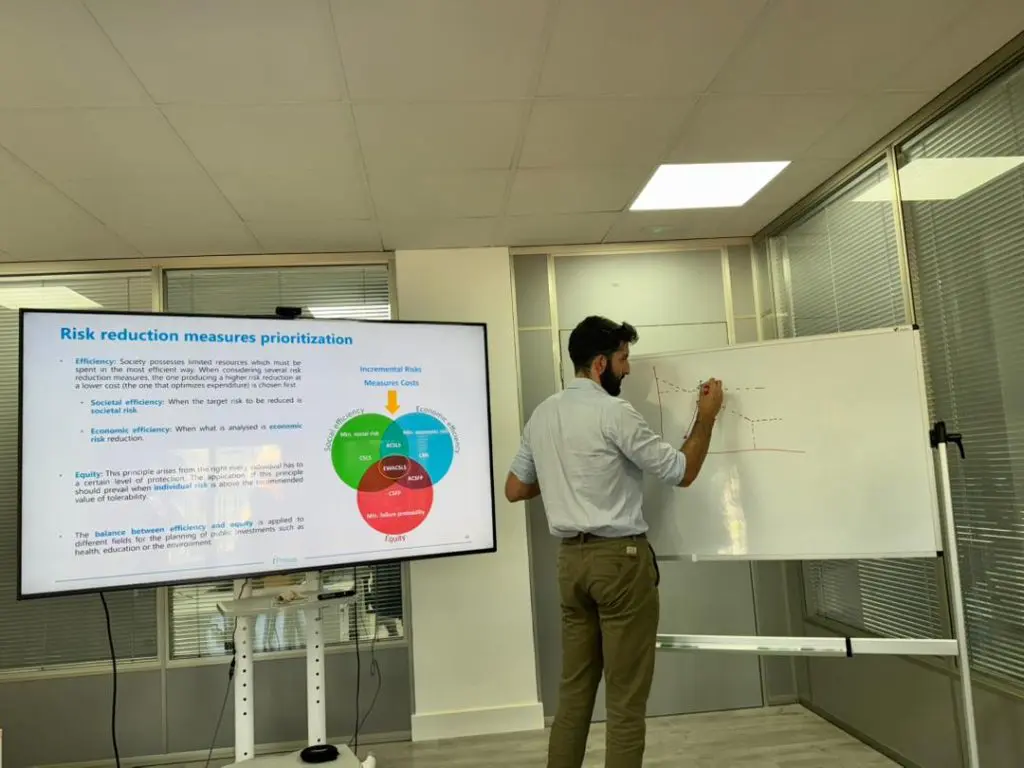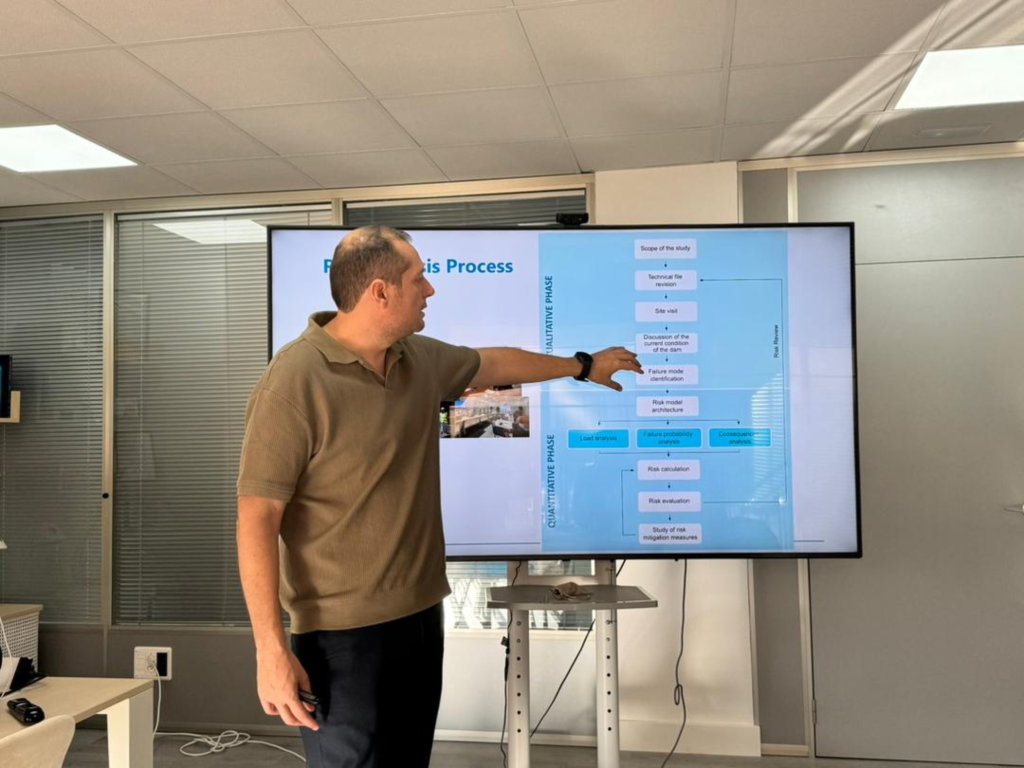From 29 September to 3 October 2025, we had the privilege at iPresas of welcoming a delegation from the Department of Irrigation and Drainage of Malaysia for an intensive week of training in dam risk analysis and dam safety, which included visits to various public and private dams, such as the Tous Dam (Valencian Community).
A week to align vision and practice

The objective was to share applied knowledge on how to integrate risk analysis into decision-making throughout a dam’s life cycle: from setting criteria and organising information, to prioritising actions and continuous improvement. We worked with case studies and practical exercises, focused on risk communication for different audiences (technical staff, managers and decision-makers), and discussed ways to strengthen governance and inter-institutional coordination.
What we covered (in general terms)
Foundations and international context of dam safety and risk-informed management.
Methodological approaches (qualitative, semi-quantitative and quantitative) and their strategic application in plans and programmes.
Prioritisation of risk-reduction measures and investment planning under real constraints.
Surveillance, monitoring and instrumentation as the basis for evidence-based decisions.
Integrated basin management and flood coordination, including operational and response aspects.
Learning in the field
The visits to different public and private dams, such as the Tous Dam, brought theory into practice: reviewing outlet works, discussing flood operation protocols, comparing monitoring programmes, and analysing operation and maintenance challenges with the infrastructure in front of us. This direct exposure generates learning that no classroom can replicate.
Why it matters?
Risk analysis is a way to organise decision-making, with clear and visible rules, to determine which actions should come first. It helps transparently select the measures that most reduce risk and provide greater safety for the public. In the context of climate change, a higher demand for these studies is expected, making it necessary to optimise resources through tools that allow efforts to be focused according to the priorities in each context.

Acknowledgements

Our sincere thanks to the Malaysian delegation for their participation, technical rigour, and openness in contrasting approaches, needs and challenges in the Malaysian context. We particularly value the exchange of experiences during the sessions and the joint discussion on implementation strategies.
Thanks also to the organisations and teams that made the dam visits possible—especially those who facilitated the day at the Tous Dam—for their availability, detailed explanations and logistical support.
And, of course, thanks to our iPresas team for the excellent work before and during the week. Initiatives like this strengthen capacities, connect professional communities, and consolidate a culture of risk-informed decision-making.



